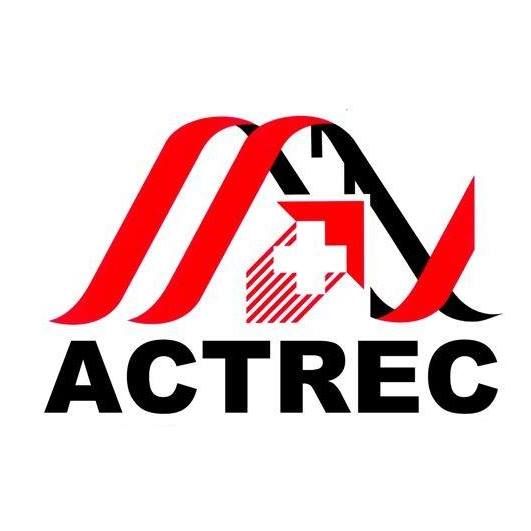预约演示
更新于:2025-05-07

Advanced Centre for Treatment Research & Education in Cancer
更新于:2025-05-07
概览
关联
5
项与 Advanced Centre for Treatment Research & Education in Cancer 相关的临床试验CTRI/2024/04/066221
To Evaluate and Assess Shoulder Morbidity using Constant Murley score after Neck Dissection in Oral Cancer Patients- A Prospective Observational Study. - NIL
开始日期2025-05-05 |
CTRI/2025/03/082092
Study on role of External breast prosthesis in psycho-social experiences of breast cancer survivors who underwent mastectomy - External breast prosthesis study
开始日期2025-04-20 |
CTRI/2024/06/069213
Late Mortality, Burden of Morbidity and Quality of Life in Long Term Survivors of Hematopoietic Cell Transplantation: Experience from A Single Centre in India - NIL
开始日期2024-07-02 |
100 项与 Advanced Centre for Treatment Research & Education in Cancer 相关的临床结果
登录后查看更多信息
0 项与 Advanced Centre for Treatment Research & Education in Cancer 相关的专利(医药)
登录后查看更多信息
262
项与 Advanced Centre for Treatment Research & Education in Cancer 相关的文献(医药)2025-06-01·Fundamental & Clinical Pharmacology
Necrostatin‐1 attenuates oral squamous cell carcinoma by modulating tumour immune response in mice
Article
作者: Mahale, Ashutosh ; Saravanan, Lavanya ; Kulkarni, Onkar Prakash ; Khandelia, Piyush ; Gota, Vikram
2025-06-01·Cancer Letters
Pharmacological and therapeutic innovation to mitigate radiation-induced cognitive decline (RICD) in brain tumor patients
Review
作者: Goda, Jayant S ; Raj, Jemema Agnes Tripena ; Shah, Janmey ; Ghanekar, Shubham ; John, Geofrey ; Chatterjee, Abhishek
2025-04-01·Asian Journal of Pharmaceutical Sciences
Immune response recalibration using immune therapy and biomimetic nano-therapy against high-grade gliomas and brain metastases
Review
作者: Bhat, Sakshi ; John, Geofrey ; Sandhbor, Puja ; Goda, Jayant S
1
项与 Advanced Centre for Treatment Research & Education in Cancer 相关的新闻(医药)2023-01-17
Research from India's Tata Memorial Centre suggests that free radicals (ROS) generated upon mixing two nutraceuticals—resveratrol and copper—can help ameliorate various diseases by inactivating cell-free chromatin particles
MUMBAI, India, Jan. 17, 2023 /PRNewswire/ -- Chromatin comprises a complex mixture of DNA and proteins and forms the structural basis of chromosomes in the cellular nuclei. When cells die, they release cell-free chromatin particles or "cfChPs" into the circulatory system. Emerging evidence indicates that cfChPs exert toxic effects by damaging the DNA of healthy cells and activating pro-inflammatory processes. Researchers from the Advanced Centre for Treatment, Research & Education in Cancer (ACTREC), Tata Memorial Centre (TMC), India, have recently demonstrated therapeutic benefits of a pro-oxidant mixture of resveratrol and copper, R-Cu, in patients undergoing chemotherapy for advanced gastric cancer. Combining R with Cu (R-Cu) leads to the generation of free oxygen radicals which can inactivate the offending cfChPs.
Professor Indraneel Mittra, Dr. Ernest Borges Chair in Translational Research and Professor Emeritus, Department of Surgical Oncology at TMC/ACTREC, tells us how his team "launched a single-arm phase II clinical trial to study the effect of R-Cu in reducing the toxic side effects of chemotherapy by cfChP inactivation in patients with advanced gastric cancer undergoing docetaxel-based multi-agent chemotherapy, and used a grading system for the assessment of unwanted physiological effects."
The results were promising—although R-Cu did not reduce haematological toxicities, it markedly reduced the incidence of non-haematological toxicities comprising hand-foot syndrome, diarrhoea, and vomiting. Moreover, R-Cu reduced docetaxel exposure compared to the control arm without affecting efficacy in terms of overall survival.
This study was supported by Department of Atomic Energy, Government of India, through its grant CTCTMC to Tata Memorial Centre, awarded to Prof. Mittra.
Prior to this, two studies from Prof. Mittra's group used mouse models to demonstrate the benefits of R-Cu administration in prevention of ageing and sepsis. The first of these indicated that the cfChPs that are released from the billions of cells that die in the body every day and damage healthy cells is the underlying cause of ageing, and prolonged oral administration of R-Cu leads to the downregulation of multiple biological parameters of ageing including neurodegeneration, which is associated with Alzheimer's disease. The other study showed how cfChPs trigger sepsis after bacterial infection in mice; administering R-Cu prevented this pathological process, including the prevention of fatality.
The research group has also conducted human studies. One of their previous works suggested that cfChPs released from dying cancer cells enter surrounding surviving cancer cells, trigger DNA damage and inflammation, and further contribute to their aggressive behaviour—effects that could be mitigated by R-Cu administration. Another study reports reduced grade 3/4 mucositis and reduced levels of inflammatory proteins (or "cytokines") in the serum and saliva of R-Cu-treated patients receiving bone marrow transplants with high-dose melphalan—a chemotherapeutic used to treat plasma cell cancers.
Dr. Mittra, who is the corresponding author of these articles, concludes, "Our evidence suggests that R-Cu can be a novel, cost-effective, and non-toxic agent which can be used for multiple disease conditions including cancer and metastasis prevention."
Reference
Title of original paper: A pro-oxidant combination of resveratrol and copper reduces chemotherapy-related non-haematological toxicities in advanced gastric cancer: results of a prospective open label phase II single-arm study (RESCU III study)
Journal: Medical Oncology
DOI:
Contact:
Indraneel Mitra
+91-9769769720
352117@email4pr.com
临床2期临床结果
100 项与 Advanced Centre for Treatment Research & Education in Cancer 相关的药物交易
登录后查看更多信息
100 项与 Advanced Centre for Treatment Research & Education in Cancer 相关的转化医学
登录后查看更多信息
组织架构
使用我们的机构树数据加速您的研究。
登录
或

管线布局
2026年03月01日管线快照
无数据报导
登录后保持更新
药物交易
使用我们的药物交易数据加速您的研究。
登录
或

转化医学
使用我们的转化医学数据加速您的研究。
登录
或

营收
使用 Synapse 探索超过 36 万个组织的财务状况。
登录
或

科研基金(NIH)
访问超过 200 万项资助和基金信息,以提升您的研究之旅。
登录
或

投资
深入了解从初创企业到成熟企业的最新公司投资动态。
登录
或

融资
发掘融资趋势以验证和推进您的投资机会。
登录
或

生物医药百科问答
全新生物医药AI Agent 覆盖科研全链路,让突破性发现快人一步
立即开始免费试用!
智慧芽新药情报库是智慧芽专为生命科学人士构建的基于AI的创新药情报平台,助您全方位提升您的研发与决策效率。
立即开始数据试用!
智慧芽新药库数据也通过智慧芽数据服务平台,以API或者数据包形式对外开放,助您更加充分利用智慧芽新药情报信息。
生物序列数据库
生物药研发创新
免费使用
化学结构数据库
小分子化药研发创新
免费使用